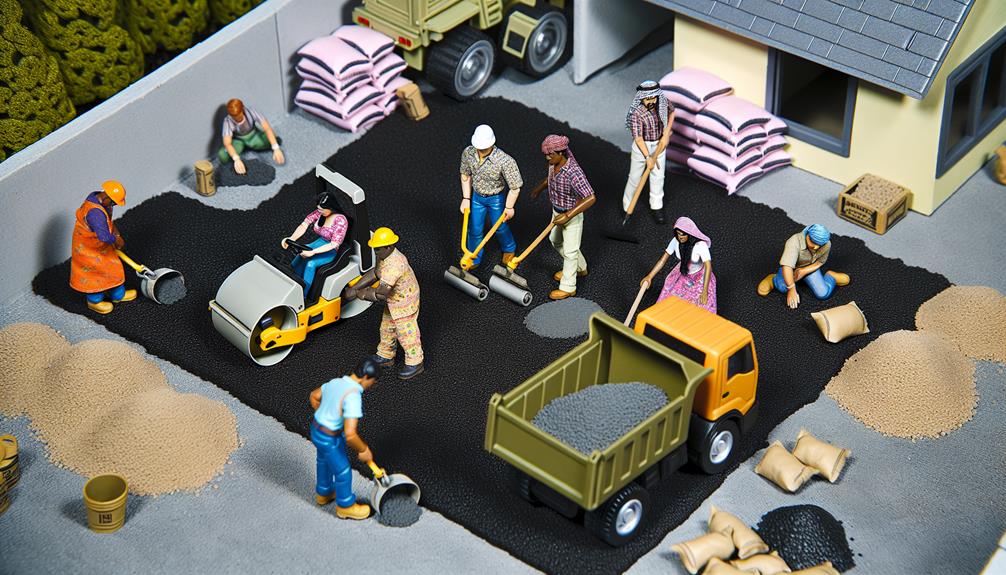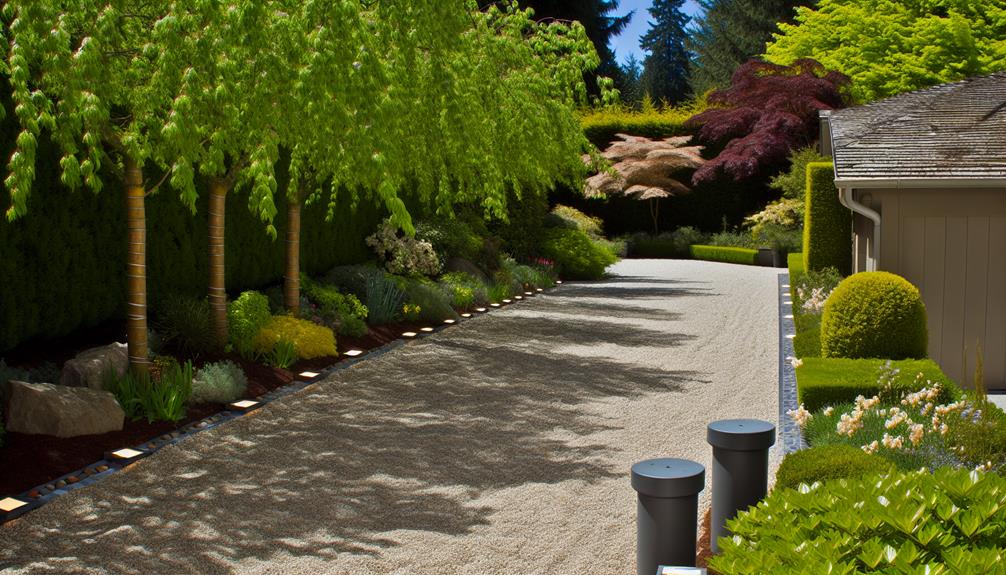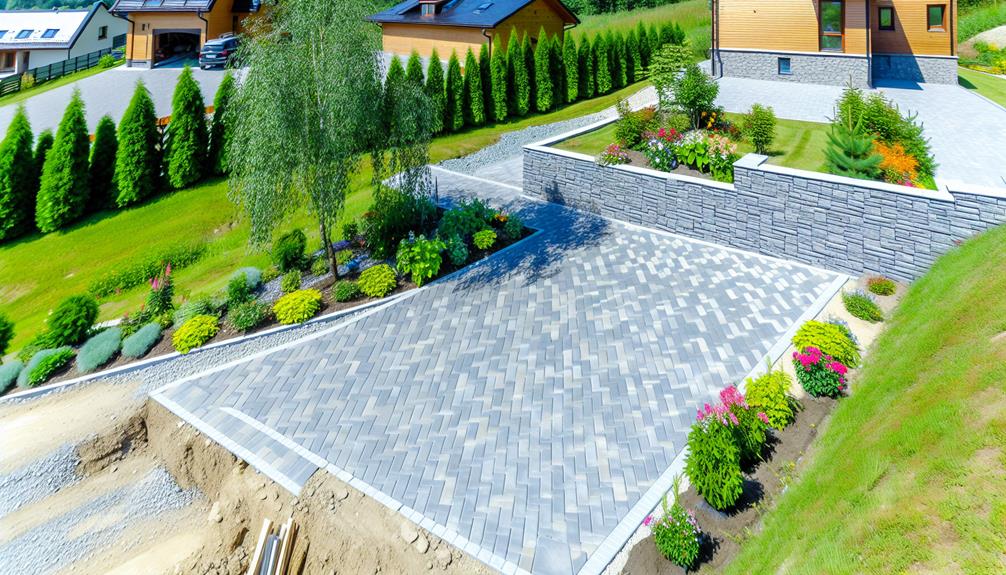When considering the cost of installing a new driveway, it's like peeling back layers of an onion – each revealing a different aspect of expenses. The initial investment may only be the tip of the iceberg. Have you ever wondered how additional features or the choice of materials can impact the overall budget? Let's explore the intricacies of driveway installation costs beyond the surface figures and discover the nuances that could make all the difference in your project's financial landscape.
Driveway Material Costs Breakdown
When considering the cost of installing a new driveway, understanding the breakdown of driveway material costs is essential for making informed decisions. Concrete driveways come in at an average cost of $11.70 per square foot, with a range from $7 to $16.35 per square foot. Asphalt driveways are slightly cheaper, averaging $7.70 per square foot and ranging from $5 to $10.35 per square foot. Chip seal driveways offer a mid-range option, with an average cost of $6.20 per square foot and a range of $4 to $8.35 per square foot. Gravel driveways are the most budget-friendly choice, costing around $3 per square foot on average, with a range from $1 to $5 per square foot. By carefully considering these cost breakdowns for various driveway materials, you can select the option that best fits your budget and preferences. Installation costs will vary based on the material chosen, so understanding these initial material costs is crucial for effective planning.
Labor Expenses for Driveway Installation
To comprehend the significant impact on your overall project expenses, understanding the labor costs associated with driveway installation is paramount. Labor costs for driveway installation typically range from $2 to $7 per square foot. These expenses represent approximately half of the total project cost. The complexity of the design and the type of material chosen can significantly impact labor costs. Factors such as land preparation, which includes tasks like excavation and grading, also contribute to the overall labor expenses. It is crucial to employ skilled labor for the installation process to ensure proper execution, which in turn enhances the durability and longevity of the driveway. Proper installation not only affects the immediate appearance but also influences the driveway's resilience over time. By investing in skilled labor and ensuring a meticulous installation process, you can enhance the overall quality and lifespan of your new driveway.
Factors Influencing Driveway Installation Costs
Factors that can influence driveway installation costs include the size of the driveway, the material chosen, and the complexity of the design. The size of the driveway directly impacts the overall cost, as labor expenses for installation typically range from $2 to $7 per square foot. Material costs also play a significant role, with the price for installing a new driveway varying between $1,700 to $7,000 depending on the material selected. Moreover, the design and shape of the driveway can further increase the total cost by 10% to 30% due to additional labor and material requirements. Additionally, factors such as demolition and removal costs for old driveways, which can range from $1 to $2 per square foot, need to be considered when calculating the total installation expenses. Therefore, when planning for a new driveway, it is essential to carefully assess these factors to determine an accurate cost estimate.
Tips for Cost-Saving on New Driveways
For cost-effective driveway installations, consider selecting simpler materials such as gravel or asphalt to reduce expenses. These materials are often more budget-friendly compared to options like concrete or pavers, helping you save money per square foot. Inquire with contractors about off-season installation discounts, as this can significantly reduce expenses. Keeping the driveway surface basic without intricate designs can also lower the overall cost. When seeking quotes, obtain estimates from multiple contractors to compare prices and find the most cost-effective option for your new driveway. Additionally, reducing the driveway width can help save money on materials and installation costs. By implementing these cost-saving tips and being mindful of the factors influencing driveway installation costs, you can create a durable and functional driveway without overspending.
DIY Vs. Professional Driveway Installation Costs

Considering the complexity of driveway materials and the equipment required for installation, deciding between DIY and professional driveway installation can significantly impact the quality and longevity of your new driveway. Opting for a DIY approach may save on labor costs, but it often demands substantial time, effort, and expertise. Professionals, on the other hand, offer quality installation, especially crucial for intricate materials like pavers. While simpler materials such as gravel driveways might be suitable for a DIY project, it's essential to weigh the trade-offs between cost savings and the level of workmanship achieved. Large equipment needs for installation also tilt the scale towards professional help in many new driveway projects. Ultimately, the decision between DIY and professional installation hinges on balancing costs, time commitments, material intricacies, and desired quality outcomes. Choose wisely to ensure a durable and aesthetically pleasing driveway that meets your needs and budget constraints.


